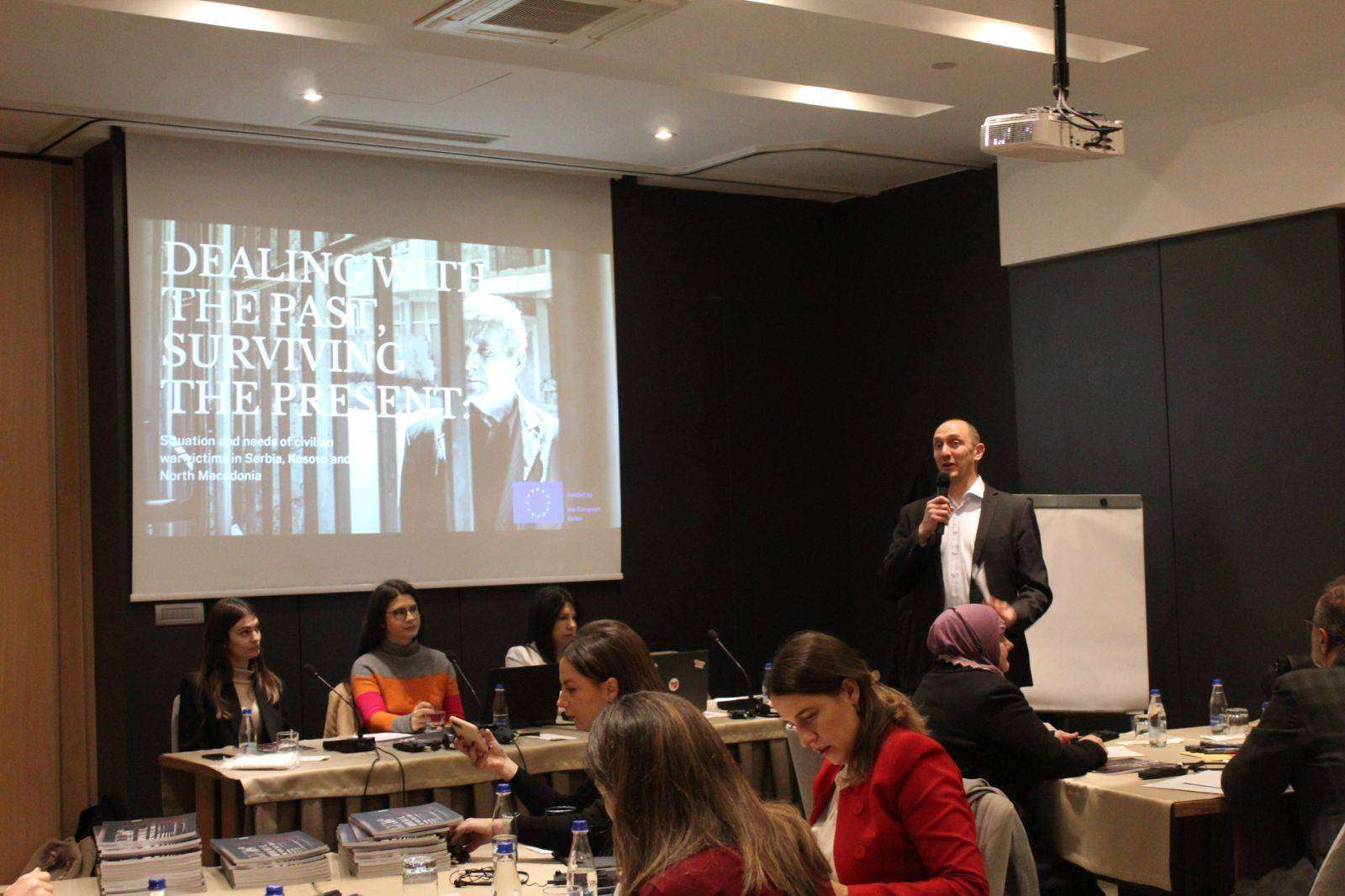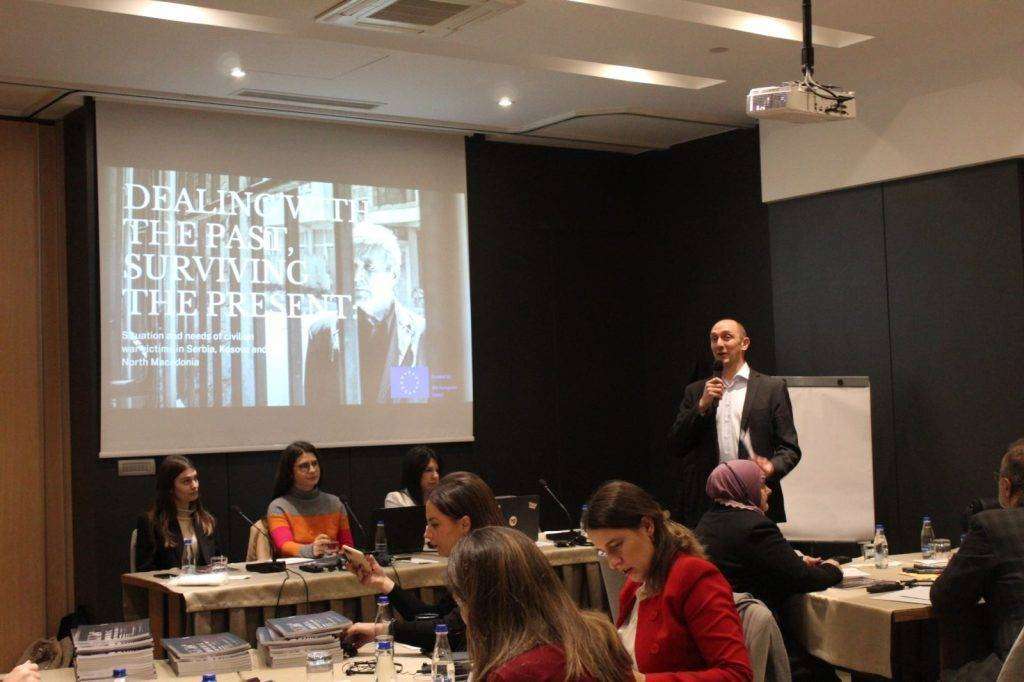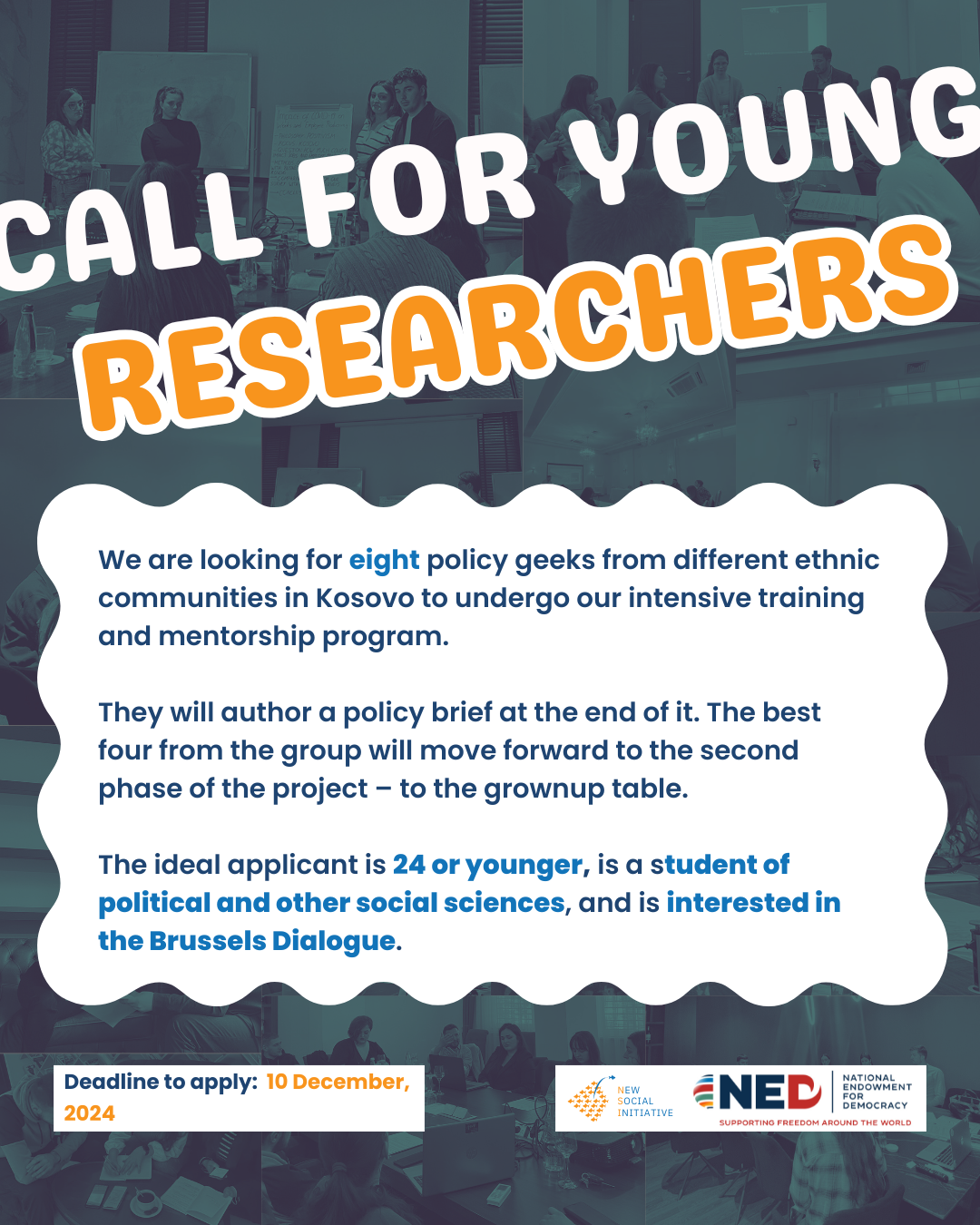
Publication of the assessment study Dealing with the past, surviving the present: Situation and needs of civilian war victims in Serbia, Kosovo and North Macedonia

An international consortium of non-governmental organizations mostly focused on transitional justice work has published the first ever assessment study looking into the situation and needs of civilian war victims in Serbia, Kosovo and North Macedonia titled “Dealing with the past, surviving the present”.
The study is a part of the project “Strengthening Inclusive Victim Voices, Transforming Narratives” (SIVV). This project is a joint initiative implemented in Kosovo, Serbia, and North Macedonia, by Peace Movement PAX, International Centre for Transitional Justice (ICTJ), Integra, New Social Initiative (NSI), Civic Initiatives (CI), and Peace Action (PA) and supported by the European Union in the amount of EUR 982,000.
This study finds that after 20 plus years since the Yugoslav break-up wars, the Kosovo War of 1998–1999 and the 2001 armed conflict in North Macedonia, many victims and other conflict-affected groups still struggle with the legacy left by the violent past. Most victims in the three countries are still seeking redress, truth, justice and social recognition. Most experience serious socio economic hardship, face obstacles in fulfilling their rights, and cope with post-war trauma.
War victims and other affected groups share comparable needs – the need to know the truth about what happened to the deceased or missing; to have legal support to seek justice for the crimes; recognition of their status as victims, regardless of their ethnicity; economic and psychological support; and memorialisation of the past.
To be able to achieve their priorities and fulfill their mission, war victims and other affected groups also need technical support in the following areas:
- mapping out and bringing together other victims with similar needs and experiences,
- including the second generation, so that the various groups can organize, represent
themselves and advocate for their rights
- financial support to maintain their (in)formal victims’ group and include younger generations in their mission
- capacity building in advocacy, lobbying and developing campaigns
- understanding the principles of transitional justice to place their experiences in a broader social context, while also contributing to a more peaceful future
- awareness and understanding of gender aspects of suffering and the specific needs
of women
- establishing partnerships, both with other victims’ groups and NGOs, to help broaden their focus in terms of gender aspects, strengthen their advocacy position, and increase project management skills
- technical assistance to help associations strengthen their financial sustainability, management skills and human resources.
The research also points to additional issues to be addressed more broadly, such as depoliticisation of victims’ wartime experiences and mission, recognition of gender aspects of suffering and the specific needs of women victims and survivors and creating a culture of remembrance of the violent past based on multiperspectivity.
The publication will be launched in separate events in Pristina on 29 November, Belgrade on 2 December, and in Skopje on 13th December. It is available in English, Serbian, Albanian and Macedonian and will be available online.
SIVV project is funded through the EU Service for Foreign Policy Instruments with the aim to generate national and regional support to transitional justice processes that meaningfully integrate the needs and demands of victims and other groups affected by the conflict and that effectively counter hate and nationalistic speech.





